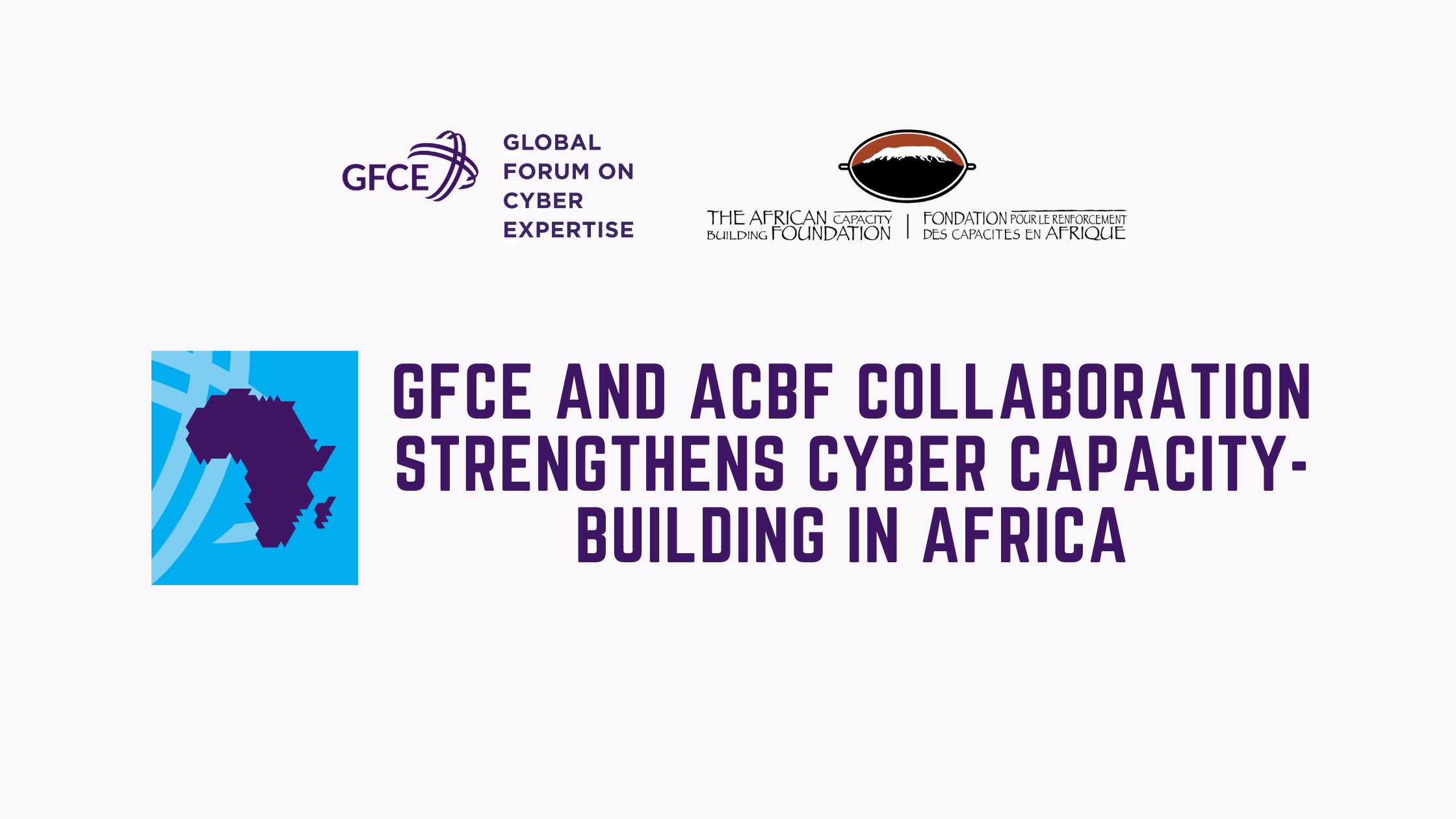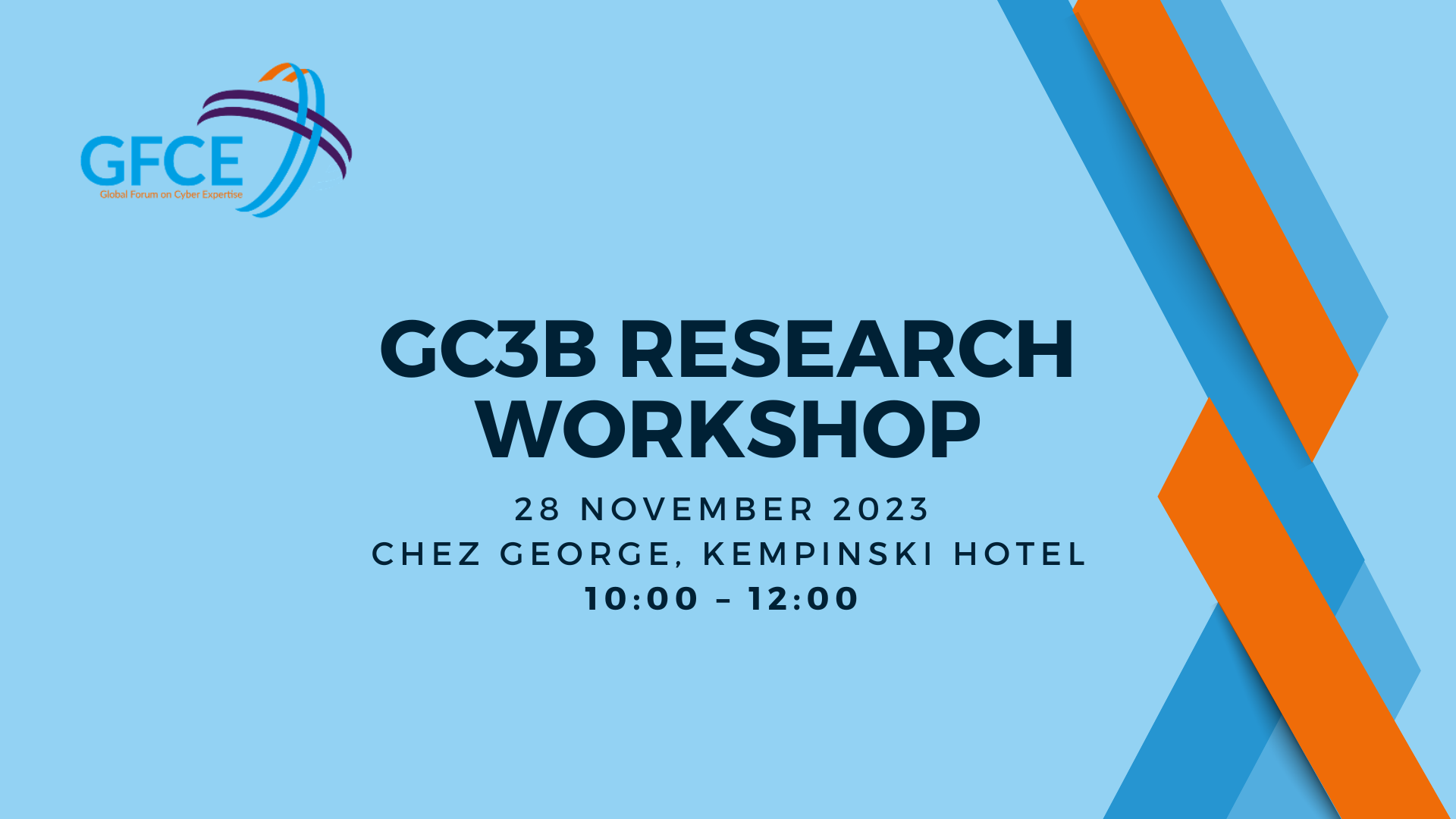GFCE Contributes to AfDB Workshop on Cyber Risk and Cyber Threat Intelligence

November 23, 2024 – The Global Forum on Cyber Expertise (GFCE) was honored to participate in a workshop hosted by the African Development Bank (AfDB) focusing on cyber risk and cyber threat intelligence in Africa’s dynamic digital landscape. The event, held on Friday November 22, featured contributions from GFCE Africa Hub representatives Moctar Yedaly, Director […]
GFCE and AUDA-NEPAD Partner to Strengthen Cybersecurity Across Africa

The Global Forum on Cyber Expertise (GFCE) and the African Union Development Agency (AUDA-NEPAD) have announced a partnership to strengthen cybersecurity capacity across Africa, advancing the African Union’s Agenda 2063 vision of a “peaceful and secure Africa.” This collaboration supports the Malabo Convention’s objectives for establishing comprehensive cybersecurity and data protection measures across the continent. […]
Africa Regional Meeting 2024
The GFCE Africa Regional Meeting 2024, hosted by the Global Forum on Cyber Expertise Africa Hub, was held in Addis Ababa, Ethiopia. This important gathering took place on 20th of November, 2024 in the margins of the Africa Internet Governance Forum 2024. The meeting featured both in-person and virtual participation options. This regional meeting offered a valuable opportunity for stakeholders to influence […]
Global Commitment: GFCE and ACBF Sign MOU to Strengthen Cybersecurity Capacity Building

By: Dominic Sepenu GFCE and ACBF unite in a landmark MOU to bolster Africa’s cybersecurity resilience. This collaboration aims to address escalating cyber threats by pooling resources and expertise. Through targeted capacity-building programs, governments, institutions, and individuals will gain vital skills to mitigate risks effectively. In a significant move towards enhancing global cybersecurity resilience, the […]
Critical Success Factors: A Guide to Successful Cyber Capacity Initiatives through the GFCE’s Clearing House mechanism

By: Jaqueline Pateguana, Clearing House Coordinator In the face of escalating cybersecurity risks, the GFCE Clearing House tool remains crucial in coordinating cyber capacity building initiatives at local, regional and global levels. By offering tailored assistance, it connects members of the GFCE community to resources and expertise, fostering collaboration to address the increasing threats to […]
GC3B Research Workshop, 28th November 2023: the intersection between cybersecurity and development agendas

To foster scholarly research on cybersecurity capacity building and enhance dialogue between the research community and policymakers, the GFCE Research Committee is organising a workshop on Tuesday, 28th November, in the margins of the Global Conference on Cyber Capacity Building (GC3B). Following a call for papers in July, eight selected papers will be presented and […]
UK-GFCE Institution Building: Cyber Capacity Building
Sponsor UK Foreign, Commonwealth & Development Office Duration 1 April 2022 – 31 March 2024
Clearing House Coordinator/Global Partnerships Manager (UK FCDO)
Sponsor UK Foreign, Commonwealth & Development Office Related regions: Americas & Caribbean Europe Pacific Duration September 2021 – March 2022 Project objectives Description
UN Women in Cyber Fellowship
Sponsor UK Foreign, Commonwealth & Development Office Duration 01/10/2021 – 31/03/2022 Project objectives Ensure equal and effective representation of women in UN cyber negotiations. Description
Creating coordination and targeted training of cybersecurity capacity in Africa
Sponsor Bill & Melinda Gates Foundation Duration 01/09/20 – 31/12/23 Project objectives The primary outcome of the project is to enable a majority of African Countries to identify and address their national cyber capacity needs, in turn helping to strengthen their cyber resilience. To achieve the primary outcome and to ensure these efforts can be […]
Enhancing cyber capacities and CCB coordination in ECOWAS countries
Sponsor Federal Ministry for Foreign Affairs Duration 15/02/22-15/07/22 Project objectives In-depth interviews with each ECOWAS member states on their CCB needs. Increased participation of ECOWAS countries in GFCE initiatives, including the AUGFCE project and the CCB Coordination Committee. Description Through participation in GFCE workshops, ECOWAS countries are further engaged in identifying CCB needs, sharing knowledge […]
International Law of Cyber Operations: Training and Capacity Building Program on International Law and Cyberspace
Sponsor Global Affairs Canada Duration 19-21 July 2023 Project objectives The training seeks to improve state capacity to effectively engage with the international community to develop the normative architecture governing cyberspace and state behavior, in particular public international law, including for Women in International Security and Cyberspace alumni. The Exchange of views will discuss the […]
International Law of Cyber Operations Executive Course and CLI Alumni Course
Sponsor Global Affairs Canada Duration 7-14 June 2023 Project objectives The Executive course seeks to improve state capacity to effectively engage with the international community to develop the normative architecture governing cyberspace and state behavior, in particular public international law. The alumni course seeks to build the capacity of, and networks between, policy makers, legal […]
International Law of Cyber Operations Course
Sponsor Global Affairs Canada Duration 14-18 November 2022 Project objectives The scope of the Project is to examine the law applicable to cyber operations during peacetime and to focus on various specialized regimes of international law as applied in the cyber context. Description The course also includes two exercises to enable the application of the […]
Study on ‘Advancing Cyber Security with Africa’
Sponsor KPMG Duration 14 weeks (starting November 2021) Project objectives Description The engagement will consist of five (5) phases
Africa regional meeting 2016
From 12 to 13 April 2016 a regional meeting on Cyber Security in West Africa was held in Dakar, initiated by the Government of Senegal and the Kingdom of the Netherlands, in Partnership with the UNODC. The event was attended by approximately 200 national, regional and international experts and focused on the main theme “Awareness […]
Africa regional meeting 2022
On the margins of the 17th annual IGF, the Global Forum on Cyber Expertise (GFCE) and the African Union Development Agency New Partnership for Africa’s Development (AUDA-NEPAD) hosted the GFCE Africa Regional Meeting 2022. The main objective of the meeting was to provide the Africa Cybersecurity Experts (ACE) community and Members of the CCB Coordination Committee with a platform to share knowledge and expertise on […]
Sierra Leone to roll out cyber skills assessment with support from GFCE Community

Written by: Jaqueline Pateguana, Clearing House Coordinator at the GFCE Secretariat; Anna Noij, Advisor at the GFCE Secretariat. With the support from the Global Forum on Cyber Expertise (GFCE)’s Clearing House, the Government of Sierra Leone intends to strengthen cybersecurity capabilities of its society as a whole, including citizens, public and private sector. The National […]
